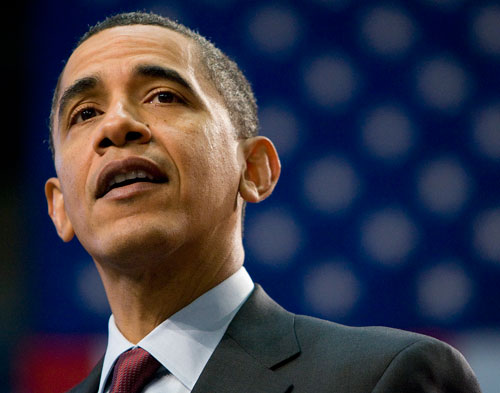Obama puzzled by Putin once again

Once again, President Barack Obama and his foreign policy team are stumped. Why is Vladimir Putin pouring troops and weaponry into Syria? After all, as Secretary of State John Kerry has thrice told his Russian counterpart, Sergei Lavrov, it is only making things worse.
But worse for whom? For the additional thousands of civilians who will die or flee as a result of the inevitably intensified fighting. True, and I’m sure Lavrov is as moved by their plight as by the 8,000 killed in Russia’s splendid little Ukrainian adventure.
Kerry and Obama are serially surprised because they cannot fathom the hard men in the Kremlin. Yet Putin’s objectives in Syria are blindingly obvious:
1. To assert Russia’s influence in the Middle East and make it the dominant outside power. Putin’s highest ambition is to avenge and reverse Russia’s humiliating loss of superpower status a quarter-century ago. Understanding this does not come easily to an American president who for seven years has been assiduously curating America’s decline abroad.
2. To sustain Russia’s major and long-standing Arab ally. Ever since Anwar Sadat kicked the Soviets out of Egypt in 1972, Syria’s Assads have been Russia’s principal asset in the Middle East.
3. To expand the reach of Russia’s own military. It has a naval base at Tartus, its only such outside of Russia. It has an airfield near Latakia, now being expanded with an infusion of battle tanks, armored personnel carriers, howitzers and housing for 1,500 — strongly suggesting ground forces to follow.
4. To push out the Americans. For Putin, geopolitics is a zero-sum game: Russia up, America down. He is demonstrating whom you can rely on in this very tough neighborhood. Obama has given short shrift to the Kurds, shafted America’s allies with the Iran deal and abandoned the Anbar Sunnis who helped us win the surge. Meanwhile, Putin risks putting Russian boots on the ground to rescue his Syrian allies.
Obama says Bashar al-Assad has to go, draws a red line on chemical weapons — and does nothing. Russia acts on behalf of a desperate ally. Whom do you want in your corner?
5. To re-legitimize post-Crimea Russia by making it indispensable in Syria. It’s a neat two-cushion shot. At the United Nations next week, Putin will offer Russia as a core member of a new anti-Islamic State coalition. Obama’s Potemkin war — with its phantom local troops (our $500 million training program has yielded five fighters so far) and flaccid air campaign — is flailing badly. What Putin is proposing is that Russia, Iran and Hezbollah spearhead the anti-jihadist fight.
Putin’s offer is clear: Stop fighting Assad, accept Russia as a major player, and acquiesce to a Russia-Iran-Hezbollah regional hegemony — and we will lead the drive against the Islamic State from in front.
And there is a bonus. The cleverest part of the Putin gambit is its unstated cure for Europe’s refugee crisis.
Wracked by guilt and fear, the Europeans have no idea what to do. Putin offers a way out: No war, no refugees. Stop the Syrian civil war and not only do they stop flooding into Europe, those already there go back home to Syria.
Putin says, settle the war with my client in place — the Assad regime joined by a few “healthy” opposition forces — and I solve your refugee nightmare.
You almost have to admire the cynicism. After all, what’s driving the refugees is the war and what’s driving the war is Iran and Russia. They provide the materiel, the funds and now, increasingly, the troops that fuel the fighting. The arsonist plays fireman.
After all, most of the refugees are not fleeing the Islamic State. Its depravity is more ostentatious, but it is mostly visited upon minorities, Christian and Yazidi — and they have already been largely ethnically cleansed from Islamic State territory. The European detention camps are overflowing with Syrians fleeing Assad’s barbarism, especially his attacks on civilians, using artillery, chlorine gas and nail-filled barrel bombs.
Putin to the rescue. As with the chemical weapons debacle, he steps in to save the day. If we acquiesce, Russia becomes an indispensable partner. It begins military and diplomatic coordination with us. (We’ve just agreed to negotiations over Russia’s Syrian buildup.) Its post-Ukraine isolation is lifted and, with Iran, it becomes the regional arbiter.
In the end, the Putin strategy may not work, but it’s deadly serious and not at all obscure. The White House can stop scratching its collective head whenever another Condor transport unloads its tanks and marines at Latakia.
Charles Krauthammer (letters@charleskrauthammer.com) is a Washington Post columnist.